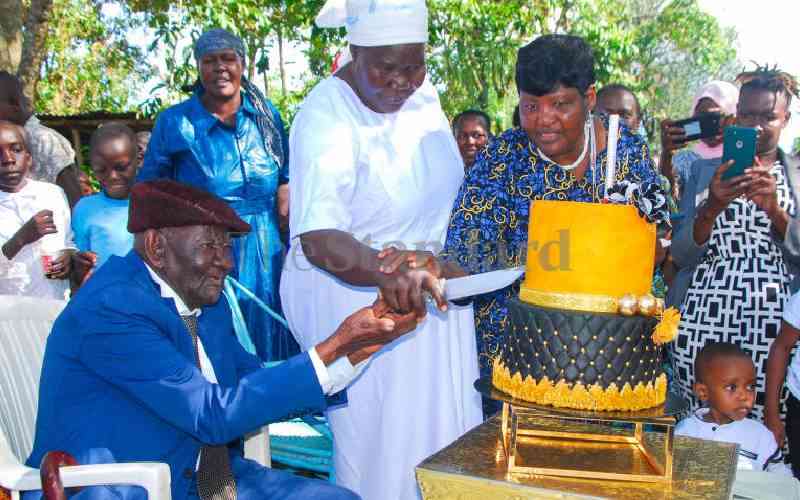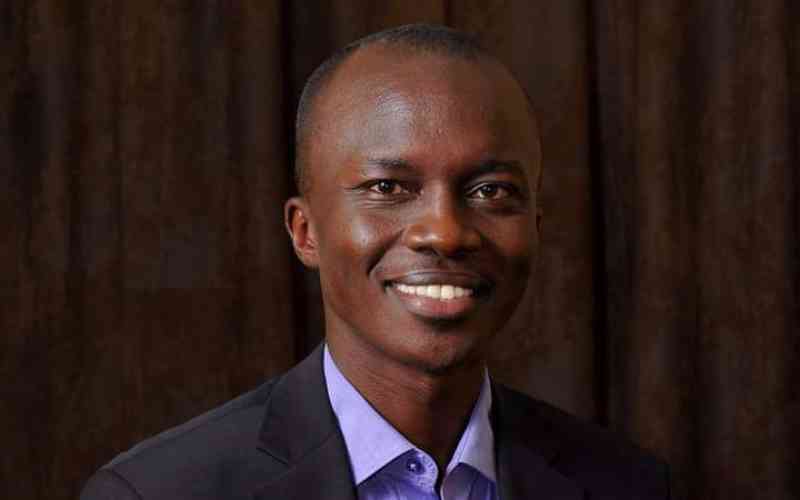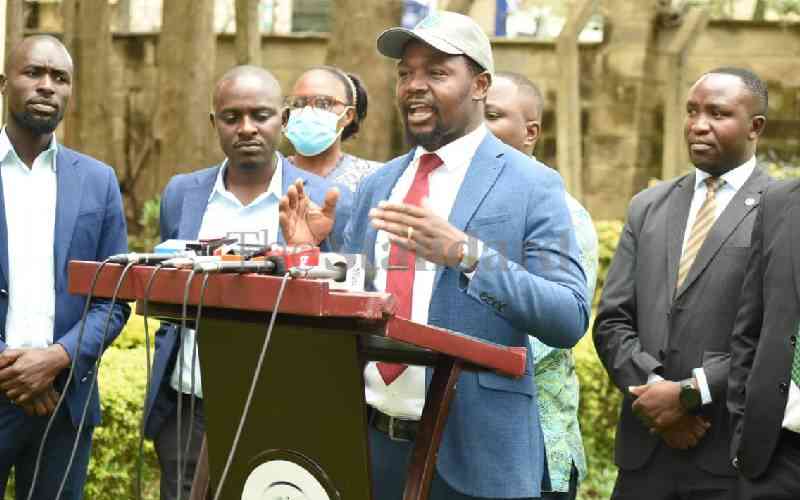By Lonah Kibet
Patients diagnosed with chronic leukemia are almost at death’s door, and could walk through it while the taxman continues to hold their free medical supplies over an unpaid levy.
John Githinji, a retired teacher, and Ramadhan Rajab, a driver with the Embassy of Sudan in Kenya, diagnosed with chronic myeloid leukemia (CML), have been depending on a cancer drug - Glivec - for more than five years now.
Dose Left
They now each have less than a week’s dose left and are wondering what will happen to them if the recent consignment currently being held by the Kenya Revenue Authority is not released soon.
The stock in the custody of KRA is worth Sh350 million meant to last for two to three months. And the beneficiaries are required to pay over Sh5.6 million as the 1.5 per cent Railway Development Levy to access the drugs.
All duty and tax have been waived in the past, until the recent introduction of Railway Development Levy Act, which requires a remittance of 1.5 per cent for all imports for domestic use. The Treasury seeks to raise Sh15 billion to finance the construction of a standard gauge railway line from Mombasa to Kisumu.
Githingi, who earns less than Sh150,000 a year, said he cannot afford to purchase the drug that his life depends on and can only pray for a miracle.
Give Up
“If it comes to buying these drugs, I will not be able to afford it as a packet that I use for one month goes for almost half a million, I would rather give up and wait for the Lord to take me,” says Githinji.
He says that from the time he was diagnosed in 2008 and prescribed the drug, the previous symptoms he experienced had completely disappeared and that he was much healthier.
“I used to sweat a lot and for a long time I was treated for malaria and pneumonia until I was tested for leukemia at Kenyatta National Hospital and the results came back positive. I was referred to Nairobi Hospital and my blood sample was taken to South Africa,” he says.
Tests came back CML positive and he was put on the Glivec dose, which he says saved his life. Rajab, who lives in Kibera, was diagnosed with the rare cancer in 2009. He says he owes his life to Glivec.
“I want the government to come in and help us. Our lives depend on the drug,” he says.
Health Cabinet Secretary James Macharia, cognisant of the situation, said that the government had already commissioned a process to review the Act that introduced the levy.
Stay informed. Subscribe to our newsletter
“As soon as Parliament reopens, that will be one of the issues we will bring before it to make sure the waiver on drugs and medicines is done immediately,” said Macharia.
Glivec is used to treat adults and children who have CML and acute lymphoblastic leukemia.
Patients like Rajab and Githinji and over 70 others who were regrettably turned away at the weekend due to lack of drugs at the Nairobi Hospital pharmacy can only wait for the government’s move to review the Act.
Prof N.A Othieno Abinya of the department of medicine at the University of Nairobi’s says they had to explain to the patients that there were no drugs in stock and that they had to keep checking to see if they had been released.
Abinya warns that several patients who have exhausted their prescribed doses could develop resistance to the drug because of interruptions.
“Blood count will start misbehaving by fluctuating up and down and this is very risky for the patients,” says Prof Abinya.
Free Drug
He says the free drug helps to attack growth of cancer cells and has benefited over 500 patients.
Elu Mapelu, who is the vice-chairman of Henzo Kenya, a cancer support group, says they currently cater for more than 350 patients form poor backgrounds countrywide.
The programme has been active since 2005 with drugs being flown in quarterly. It is co-funded by Novartis and Max Foundation and is run by the Nairobi Hospital.
He says treatment of rare cancers is very expensive and the drug must be taken continuously. A daily dose goes for around Sh10,000.
He says they have been working with Nairobi Hospital that has availed a clinic for the patients and a pharmacy dedicated to dispensing the free drug.
Mapelu says the supply has been in constant and adequate supply since 2005, with stock being flown in quarterly and they could risk losing donors if they ask them to pay for the levy as well. “Our only hope is the government. They should act fast to sort out the situation. We cannot ask our donors or the hospital to pay for the levy,” says Mapelu.
 The Standard Group Plc is a
multi-media organization with investments in media platforms spanning newspaper
print operations, television, radio broadcasting, digital and online services. The
Standard Group is recognized as a leading multi-media house in Kenya with a key
influence in matters of national and international interest.
The Standard Group Plc is a
multi-media organization with investments in media platforms spanning newspaper
print operations, television, radio broadcasting, digital and online services. The
Standard Group is recognized as a leading multi-media house in Kenya with a key
influence in matters of national and international interest.
 The Standard Group Plc is a
multi-media organization with investments in media platforms spanning newspaper
print operations, television, radio broadcasting, digital and online services. The
Standard Group is recognized as a leading multi-media house in Kenya with a key
influence in matters of national and international interest.
The Standard Group Plc is a
multi-media organization with investments in media platforms spanning newspaper
print operations, television, radio broadcasting, digital and online services. The
Standard Group is recognized as a leading multi-media house in Kenya with a key
influence in matters of national and international interest.








